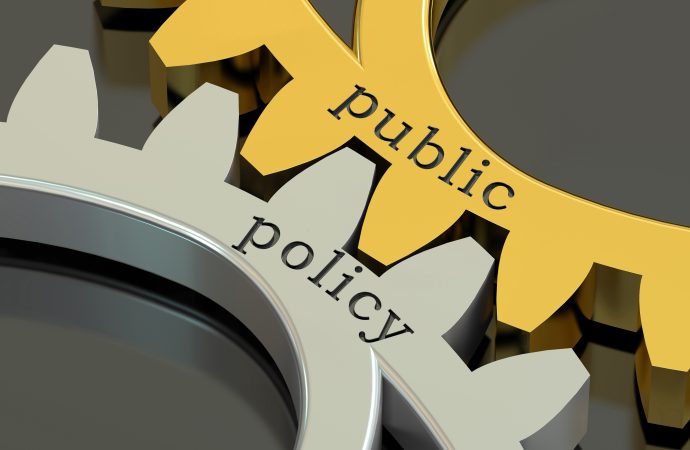Introduction Public policy affects nearly every part of our lives—from the roads we drive on to the healthcare we receive. But understanding how these policies are formed, implemented, and evaluated can be complex. This is where governance experts come in. They help bridge the gap between policy theory and real-world outcomes, ensuring that decisions made
Introduction
Public policy affects nearly every part of our lives—from the roads we drive on to the healthcare we receive. But understanding how these policies are formed, implemented, and evaluated can be complex. This is where governance experts come in. They help bridge the gap between policy theory and real-world outcomes, ensuring that decisions made by governments truly serve the public interest.
By learning from these experts, we gain insights into the processes that shape our societies. This article explores what public policy is, how governance works, and the strategies experts use to address modern challenges while creating effective and fair solutions.
Understanding Public Policy
Public policy refers to the set of laws, regulations, and actions that governments create to address societal issues. It can cover a wide range of areas such as education, healthcare, transportation, security, and environmental protection.
Policies are developed through a cycle: identifying a problem, proposing solutions, gaining approval, implementing changes, and evaluating results. Governance experts help guide this cycle, ensuring that policies are backed by research, data, and public engagement. Their role is not only to design rules but also to predict how those rules will work in practice.
The Role of Governance Experts
Governance experts are professionals who understand the structure and functioning of government systems. They analyze complex issues, interpret regulations, and propose improvements to ensure policies meet their intended goals.
Their responsibilities often include:
- Advising lawmakers and public officials
- Conducting research on social and economic trends
- Engaging with stakeholders to understand community needs
- Monitoring and evaluating the impact of policies
- Suggesting reforms to improve efficiency and fairness
By combining technical knowledge with practical experience, governance experts provide clarity in an often complicated political environment.
How Policies Are Developed and Implemented

Image by: Yandex.com
The process of creating public policy involves several steps. Governance experts play a key role at each stage:
- Problem Identification: Gathering data to understand the root cause of an issue.
- Policy Formulation: Designing proposals that address the problem effectively.
- Decision-Making: Working with political leaders to choose the best course of action.
- Implementation: Overseeing how policies are put into practice.
- Evaluation: Measuring the results and making adjustments if needed.
Without expert guidance, policies risk being rushed, unclear, or ineffective. A well-designed policy considers not just the present but also future implications.
Key Challenges in Public Policy
While policies aim to solve problems, the path to success is rarely straightforward. Governance experts face a range of challenges:
- Political Pressure – Decisions may be influenced by short-term political goals rather than long-term benefits.
- Resource Limitations – Budget constraints can restrict the scale or speed of policy implementation.
- Public Opposition – Even beneficial policies may face resistance from certain groups.
- Global Issues – Problems like climate change or pandemics require international cooperation, adding complexity.
Experts must navigate these challenges with diplomacy, innovation, and a focus on evidence-based solutions.
The Importance of Data in Policy Decisions
In modern governance, data is one of the most powerful tools available. Governance experts rely on accurate and up-to-date information to:
- Identify emerging issues early
- Predict the impact of proposed solutions
- Measure success through clear indicators
- Justify policy decisions to the public and stakeholders
Data-driven policymaking helps ensure that decisions are not based solely on political opinion but are supported by measurable facts and outcomes.
Public Participation in Policy-Making
Engaging citizens is essential for building trust and creating policies that reflect real community needs. Governance experts encourage public participation through:
- Town hall meetings
- Online consultations and surveys
- Collaborative workshops with local organizations
When citizens feel included in decision-making, policies are more likely to be accepted and supported. This partnership between government and the public strengthens democracy and accountability.
Learning from Successful Policy Models
Governance experts often study policies from other regions or countries to find inspiration. For example:
- Cities that have successfully reduced pollution may serve as models for environmental policy.
- Countries with high literacy rates can provide insights into effective education strategies.
- Regions with stable economies may offer lessons in financial policy planning.
By adapting proven approaches to local contexts, policymakers can avoid costly mistakes and improve results.
The Future of Public Policy and Governance
The future of governance is likely to be shaped by technology, global collaboration, and greater transparency. Digital tools like artificial intelligence and data analytics will help governments predict problems before they escalate.
Governance experts will continue to play a critical role by ensuring that technological solutions are applied responsibly, ethically, and in ways that protect public rights. Policies will need to be flexible enough to adapt to changing circumstances while remaining grounded in fairness and accountability.
Conclusion
Public policy is a powerful tool for shaping the future, and governance experts are essential in making sure it works as intended. By combining knowledge, research, and public engagement, these experts help governments create solutions that address real problems effectively.
The challenges of policy-making—such as limited resources, political pressures, and global issues—require careful navigation. With data-driven strategies, citizen participation, and lessons from successful models, governance can become more responsive and impactful. The more we understand how policies are made and implemented, the better equipped we are to participate in building a fair and well-functioning society.

















Leave a Comment
Your email address will not be published. Required fields are marked with *